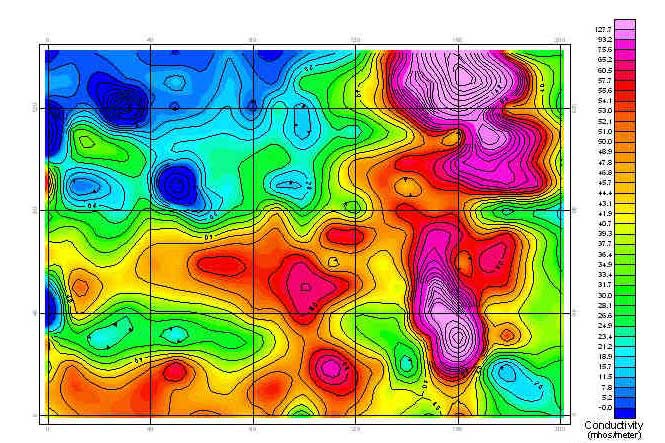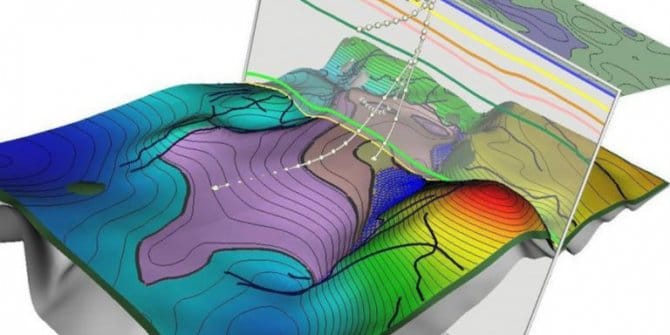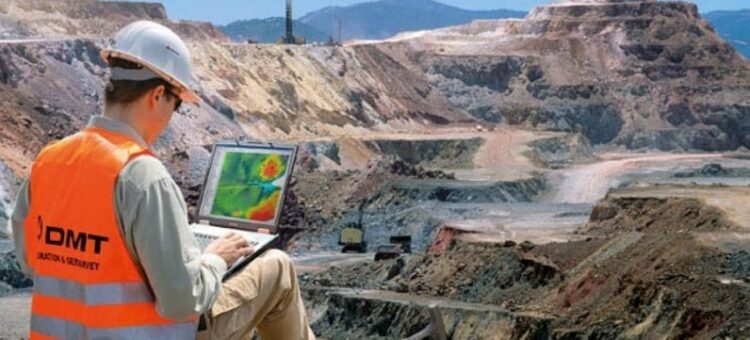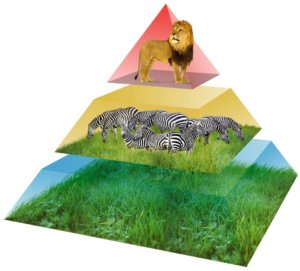The question of what is geophysics is in many ways related to a historical curiosity that belongs to humanity. Curiosity has been among the motives that affect people’s actions since the first periods of history. This instinct of curiosity that people have is mostly based on understanding nature, the universe and the social environment. Among the triggering factors of the birth and development of the science of geophysics, the importance of curiosity is too great to be underestimated. Similarly, the search for benefiting from natural resources is among the developments that accelerated the birth of this science.
In short, geophysics means understanding the earth, making sense of it and analyzing it through various methods. Undoubtedly, another factor that increases the interest in the earth together with curiosity is utility. Before the transition to the industrial era, humanity benefited from very limited resources. After the Industrial Revolution, this situation was completely reversed and resources began to be utilized rapidly. Thus, it becomes clear that the other fundamental driving force that gave birth to geophysics is economic and social interest.
How Has the Historical Development of Geophysical Science Occurred?
Another question as important as what is geophysics is that this science has developed historically. In the journey of understanding the world today, geophysics is among the most beneficial sciences. For this reason, it is very important how geophysics was born and developed in the historical process. Likewise, we can say that the term has a journey dating back to ancient times. The term was first coined by the scientist Julius Fröbel in 1844. After this date, this term of German origin begins to find various equivalents in almost every language.
Among the Turkish equivalents of the term geophysics, there are definitions such as earth physics and Earth physics. The primordial origin of geophysics goes back to Ancient Greece. First Thales, then Aristotle and many other philosophers put forward various ideas about the earth. When Thales thinks about the earth, he argues that the main substance that makes up the earth is water. Aristotle points out that earthquakes are caused by trapped gases. Ages later, the most modern form of geophysics emerged due to the interest in oil.
What is the Difference Between Geophysics and Geological Sciences?
It is very difficult to make a clear distinction between geophysics and geology. However, as both sciences have parallel domains, they also have distinctions. In its most general sense, geophysics is the science that studies the internal structure of planets, especially the earth. Geophysics enables us to learn what is going on in the depths of the earth through various methods. It examines not only the places touched by human hands, but also the places that cannot be reached. While doing this, it uses modern tools and methods revealed by its own scientific heritage.
It aims to go beyond human-reached areas of the earth, such as wells and mines. These areas include the inner structure of regions such as the mantle, earth’s crust and core. Geology, on the other hand, serves to observe various substances extracted from the ground or from its surface. In this way, information about the internal structure of the earth can be obtained. In addition, progress is being made in the history of the earth. In this sense, it is also possible to explain the distinction between the two sciences with the relationship between research and method.
What Does Geophysical Science Study on Earth?
We mentioned that curiosity has kept humanity dynamic throughout history. So, in which areas is geophysics applied, in which this curiosity played a major role in its development? The answer to this question also provides us with the answer to the question of what is geophysics. First of all, it should be noted that it is a science that is applied in many different fields in nature and in the world. The reason why we call it application is that geophysics makes use of mathematics, statistics and physics. Geophysics, which is in close contact with these sciences, is also the guide of the journey to the center of the universe. Among the topics that geophysics is primarily concerned with is making sense of the earth’s crust and the internal structure of the earth.
Apart from these areas, he is also interested in many social issues. These include archaeological and cultural studies, urban transformation plans and waste recycling areas. It also provides geological mapping, various basin surveys, research of resources such as coal, oil and natural gas. Geophysics thus reveals the methods by which natural resources can be utilized. At the same time, it provides access to a lot of information about the status of groundwater.
What Methods Does Geophysical Science Use?
Geophysics uses more than one method according to its application areas. While giving the answer to the question of what is geophysics, each of these methods has a separate value. Now, we can move on to which methods are used in the application areas of geophysics, respectively.
1) Gravity
Gravity is often used in conjunction with geodesy. The reason for this is that geodesy gives the shapes of the earth through coordinates. Gravity, on the other hand, allows to reveal the densities in various parts of the earth. While measuring the gravity field, different instruments are used. These instruments include gravity balance, gravity pendulum or gravimeter.
2) Magnetic
The magnetic method is often used as a magnetic study. Magnetic is useful for detecting areas where underground matter accumulates, congregates, or clumps. It is also a useful method for measuring the depth of the ground.
3) Seismology
The term seismology is among the concepts learned by many people during both media and social life. The reason for this is the relationship between the concept and earthquake. In addition, seismology is also used in different fields. It is useful to know that the priority of seismology today is to measure the intensity of earthquakes. Seismology also studies other seismic movements. These seismic movements are movements caused by natural resources (natural gas, oil, etc.).
4) Electricity
Electricity is among the important fields of geophysics. This is because it enables the detection of electric fields near the earth’s surface.
5) Paleomagnetism
Paleomagnetism deals with the magnetization states of rocks and other similar materials. It also helps to explain how intense these materials have in their magnetization processes.
6) Well Logs
The term well logs is the method of geophysics that relates to boreholes. Thanks to the well logs, different physical properties in the boreholes are systematized. In this way, information about the depth functions of the borehole is obtained.
7) Electromagnetic
Artificial electrification is often created underground as well as above ground. Electromagnetic is useful for measuring artificial currents produced underground. In this way, the measurement of magnetic or electric fields can be made easily.
8) Radiothermic
Radiometric is useful for measuring the intensity and intensity of gamma rays. In this way, information about the dimensions of electromagnetic radiation can be obtained.
9) Geothermic
The geothermic method is closely related to geothermal resources. Thanks to the geothermic method, more information is provided about the resources located near the earth’s surface. These sources include high pressure water and water vapor. Geothermic, on the other hand, not only searches for these sources directly, but also measures their intensity.
10) Ground Radar or GPR
One of the methods that provides a concrete answer to the question of what is geophysics is ground radar. Another name for the ground radar method is Ground Penetrating Radar, GPR for short. Thanks to the ground radar method, the effect created by the waves sent artificially into the ground is recorded. It is worth noting that the ground radar method is becoming more and more popular nowadays.
Who Is Interested in Geophysical Science? What Are the Fields They Work?
People who are interested in geophysical science are called geophysical engineers. Geophysical engineers are people who increase their knowledge by using the methods of geophysics. They try to answer the question of what is geophysics, which is the last link of humanity’s journey of curiosity for now. While doing this, they make use of mathematical data and physical measurements. Thus, they produce scientific information about the internal structure of the earth and ground movements. We can say that for geophysical engineers, people who study the structure of the earth, which is dynamic in the most general sense.
Geophysical engineering is further divided into three. Geophysical engineering is divided into three departments: Applied Geophysics, Seismology and Earth physics. Applied geophysics deals with the discovery, use, and systematization of natural resources. Seismology deals with issues such as how earthquakes occur and recording seismic movements. Earth physics, on the other hand, is a specialty of geophysics that helps to understand ground motions. It should be noted that these three fields are academic fields and those who have a license can improve themselves in these fields.
If you want to learn more about geophysical engineering:

















